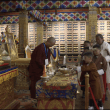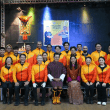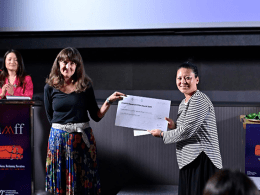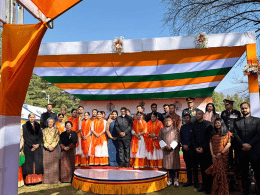For many young Bhutanese, climate change has long been confined to the pages of textbooks. Now, one researcher is reimagining how the next generation understands and responds to the climate crisis.
Thinley Choden, founder of the Bhutan Climate Literacy Project, is working to make climate education more relatable, accessible, and engaging for schoolchildren. By blending online platforms with hands-on workshops, her initiative is sparking curiosity and equipping young Bhutanese with the tools to become climate-conscious citizens.
Bridging Knowledge and Experience
Although Bhutan is famously carbon negative, the country remains highly vulnerable to the impacts of global warming. From glacial melt to shifting monsoon patterns, the threats are real. Yet, as Choden points out, understanding climate science can be difficult for many.
“Climate literacy is not just about knowing definitions,” she said. “It’s about helping young people see how climate events affect their daily lives, their communities, and their future.”
The project delivers digital content tailored for today’s youth, who often turn to TikTok, Instagram, Facebook, and YouTube for information. Through short videos and interactive storytelling, climate science is explained in everyday language, breaking down complex topics into relatable lessons.
From Classrooms to Communities
To strengthen its impact, the Bhutan Climate Literacy Project also runs in-person workshops across the country. These sessions use games, role-play, and storytelling to make learning dynamic and participatory. So far, over 600 students in 20 schools have engaged in these activities, in partnership with the Tarayana Foundation and READ Bhutan.
For many students, the experience has been eye-opening.
- “I learnt that climate change can bring many diseases. As a young girl, I need to learn about it to plan for my own future and the country’s development,” said Ugyen Wangmo, a student at Jakar Higher Secondary School.
- “We are the future citizens. It’s important we look for solutions before climate change takes hold of us,” added her classmate, Tenzin Rabsel.
Amplifying Youth Voices
Choden explains that the project is driven by three objectives:
- Making climate communication simple and accessible.
- Encouraging discussion and debate on how climate change affects Bhutanese lives.
- Connecting schools and policymakers to ensure that youth voices are heard.
She hopes future collaborations with institutions, government agencies, and international partners like the UN and WWF will amplify these efforts.
A Bhutanese Approach to a Global Issue
A 2020 UNICEF survey found that while 86 percent of Bhutanese youth reported learning about climate change in school, more than half struggled to explain what they knew. The Bhutan Climate Literacy Project aims to close this gap by “Bhutanising” climate education—making it grounded in local realities and lived experiences.
“We want young people to see themselves as part of the climate story,” Choden said. “Because only then will they feel motivated to take action in their schools, communities, and everyday lives.”







